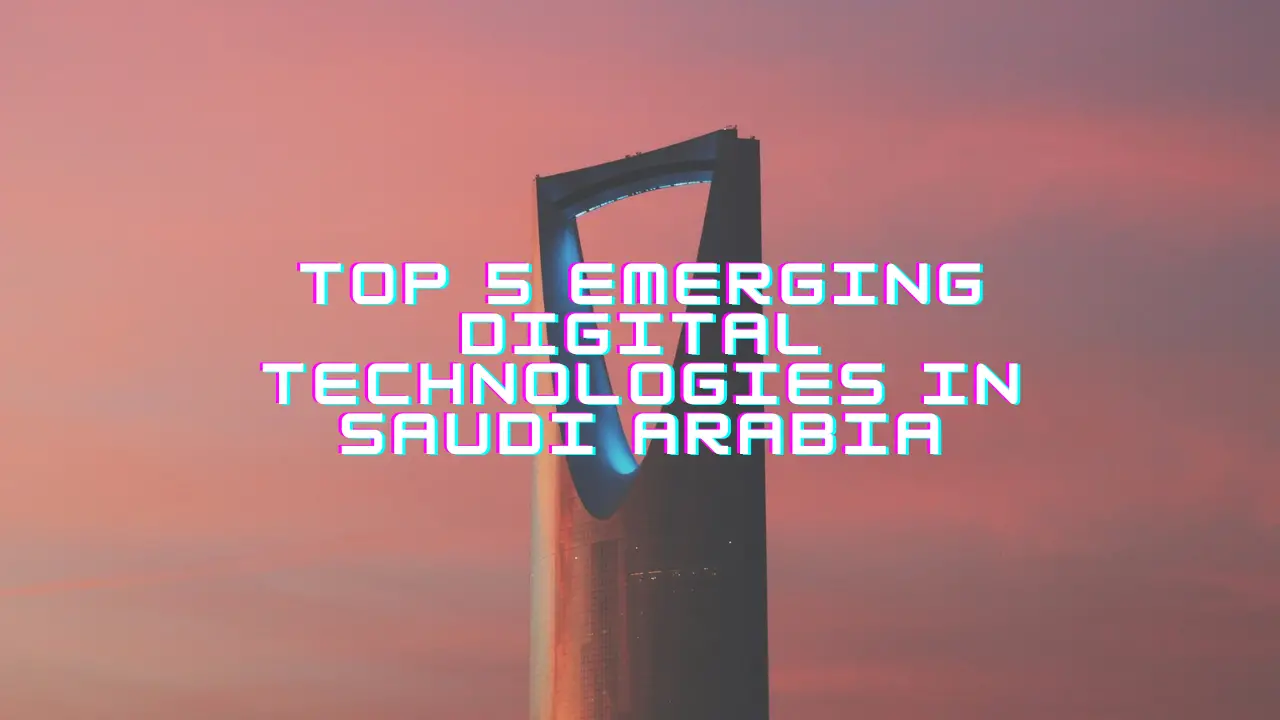To invigorate its economy, the Middle East is embracing the forefront of innovation. From public to private sectors, organizations are heavily investing in groundbreaking technologies like blockchain, cloud computing, cybersecurity, artificial intelligence, and the internet of things (5G).
Recent reports indicate that the IT and emerging tech market surged to SAR 81 billion in 2023, with projections indicating a further increase to SAR 103 billion by 2025. This surge reflects the region’s commitment to staying at the forefront of technological advancement, positioning itself for sustained growth and competitiveness on the global stage.
In the race towards innovation and digital evolution, both the UAE and Saudi Arabia stand out as frontrunners. A staggering 92% of IT decision-makers in Saudi Arabia attribute the swift pace of digital transformation to the impact of Covid-19.
Saudi Arabia’s transformation is monumental. The nation is redefining its regulatory framework to create a conducive environment for investors and businesses alike. It’s no secret that Saudi Arabia’s ambitious vision for 2030 aims to steer away from heavy reliance on the oil industry, paving the way for a more diversified and resilient economy.
Here are the top five emerging digital technologies in Saudi Arabia:
Table of Contents
Metaverse
As per insights from digital transformation specialists at Alareeb, the metaverse is emerging as a pivotal technology in Saudi Arabia, captivating individuals and businesses alike with its potential.
Statistics from Statista paint a promising picture, projecting that the number of metaverse users in the country will soar to 11.1 million by 2030, with a user penetration rate of 9.3% by 2023. Moreover, recent findings from The Metaverse Insider highlight Saudi Arabia’s prominence in metaverse investments, underscoring the nation’s rapid strides in nurturing a dynamic startup ecosystem.
Blockchain
Blockchain has been sparking intriguing discussions at LEAP, and the buzz is spreading across Riyadh. At the Saudi Vision 2030 summit, industry leaders from BSV Blockchain and ThinkTech emphasized the transformative potential of this technology for Saudi Arabia.
The allure of blockchain lies in its reliability and scalability, offering a robust platform for enterprises and government applications to address the challenges faced by citizens and businesses. Moreover, blockchain solutions come with the promise of relatively low costs and groundbreaking transparency, paving the way for significant advancements in digital transformation.
WIFI 6E
In a groundbreaking move in 2021, Saudi Arabia launched a cutting-edge connectivity initiative by introducing WiFi 6E. This historic step made the Kingdom the first in Europe, Africa, and the Middle East to unlock the 6 GHz frequency band for WiFi users.
Spanning from 5.925 GHz to 7.125 GHz, the 6 GHz band offers an unprecedented amount of spectrum, facilitating the fastest WiFi connections globally. These lightning-fast speeds are anticipated to fuel substantial GDP growth, propelling Saudi Arabia’s economy from $4.7 billion to an impressive $18 billion by 2030.
Also Read: How Technology is Transforming Saudi Arabia
Artificial Intelligence and Machine Learning
In 2022, a momentous collaboration between King Abdullah University (KAUST) and the Saudi Data and Artificial Intelligence Authority (SDAIA) gave rise to a Center of Excellence for Data Science and AI in Saudi Arabia.
This pioneering initiative aims to bolster human expertise and foster innovation in the field of AI, responding to the escalating demand for AI education and training in Saudi Arabia and neighboring regions.
Dr. Majid Altuwaijri, CEO at NCAI, underscored the significance of this partnership, stating, “The SDAIA-KAUST Center of Excellence will serve as a focal point for groundbreaking solutions and talent development, harnessing Artificial Intelligence to position the kingdom as a frontrunner in the data-driven era.”
Robotic Process Automation
The integration of robotics into business operations is gaining traction as companies strive for heightened efficiency. Robotic Process Automation (RPA) stands out as a software technology designed to simplify the creation, deployment, and oversight of software robots that mimic human actions, thus handling repetitive tasks.
RPA adoption is on the rise across various industries, with significant uptake observed in banking and financial services. Beyond enhancing internal processes, RPA is associated with improved customer satisfaction by enabling swift and high-quality service delivery.

Leave a Reply